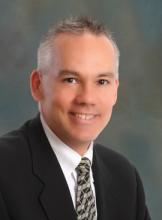When it comes to ID theft, "someone out there is going after doctors," according to Rafal Subernat, D.O.
"And we’ve done nothing wrong," added Dr. Subernat, an anesthesiologist in Bangor, Maine, whose identity was stolen this year at tax time.
Dr. Subernat and his wife thought it was peculiar when earlier this year they attempted to file their taxes electronically and the return was inexplicably rejected.
They subsequently filed by paper. But 2 weeks later, a debit-like card that Dr. Subernat had never ordered arrived in the mail. When he called the issuer, an operator explained the prepaid tax refund card was opened in Dr. Subernat’s name, and that its original $10,000 balance was now at $10.
"It was already too late at that point, because the money was gone," said Dr. Subernat, who discovered his Social Security number had been used to file a fraudulent tax return. "Emotionally, now you’re worried, where is my information? Where is my Social Security number? Is it going to happen next year again?"
Dr. Subernat’s story is mirrored by hundreds of physicians across the country who have become victims of tax fraud this year. Medical providers in 49 states and the District of Columbia have reported identity theft in 2014, including at least 50 physicians in Maine, 135 in Indiana, 192 in New Hampshire, 100 in Connecticut, 34 in Vermont, and 100 in North Carolina, according to estimated numbers provided by state medical associations. The widespread physician ID theft has led to a collaborative investigation by the IRS, the Federal Bureau of Investigation, and the Secret Service. At this article’s deadline, the source of the multistate ID theft had not been identified.
"What is happening is very concerning," said Scott G. Colby, executive vice president for the New Hampshire Medical Society. "We had a handful of people report this happened to them last year, but this year, it’s a significant amount. We’ve never before heard about this" scope of physician ID theft.
Like Dr. Subernat, most physicians learn of the fraud when their tax returns are rejected. In some cases, debit cards are issued in the doctor’s name or bank accounts are fraudulently opened to obtain tax returns. One of the most troubling aspects of the theft is the potential for the stolen personal information to be used for further fraud such as medical identity theft, said Matthew Katz, CEO of the Connecticut State Medical Society.
"When you have a physician’s Social Security number, name and address, you could potentially do other damaging things related to their identity and their medical practice," Mr. Katz said. "Physicians have concerns that [their] information could be used in some way to falsify claim submissions to the government or even worse, trying to procure medications inappropriately."
Dr. Subernat recommended that all physicians check the IRS website and review their transcripts to learn if they have been a fraud victim (www.irs.gov/Individuals/Get-Transcript). Physicians should also keep their eye out for any unusual amount of credit card offers in the mail, Mr. Katz said. A higher frequency of bank card offers and mailings could be a sign that someone is using their identity, he said.
Physicians are also reporting calls from unknown individuals who purport to be from the IRS and want them to disclose personal information so they can "check" if they are a fraud victim. The callers are believed to be piggybacking on the initial fraud crime in an attempt to fool more victims.
"We’ve cautioned our physicians not to provide information to anyone they do not know," Mr. Katz said. "Physicians should remain vigilant and cautious."
If doctors believe their identity has been stolen, the IRS encourages them to immediately report the identity theft to the agency, along with local police and the Federal Trade Commission (www.irs.gov/uac/Newsroom/Tips-for-Taxpayers,-Victims-about-Identity-Theft-and-Tax-Returns). Physicians should also contact credit reporting companies and place a 90-day fraud alert on their credit report, Mr. Colby said. The hold makes it more difficult for thieves to open accounts in the victim’s name (www.consumer.ftc.gov/articles/0275-place-fraud-alert).
Dr. Subernat was provided a secure IRS PIN for future tax return filings. He noted that physicians who believe they are ID theft victims or those who want to prevent the occurrence can contact the IRS about receiving a PIN (www.irs.gov/uac/Get-An-Identity-Protection-PIN).
As for identifying and preventing medical identity theft, physicians should make an effort to review their insurance billings and enrollment records, said Dr. Shantanu Agrawal, deputy administrator and director for the Centers for Medicare & Medicaid Services Center for Program Integrity (CPI). Medical ID theft occurs when a doctor’s personal information is stolen to obtain medical care, buy drugs, or submit fake billings to Medicare (https://oig.hhs.gov/fraud/medical-id-theft/). Doctors can request a copy of their billings from insurers as well as review their Medicare enrollment information, Dr. Agrawal said.



